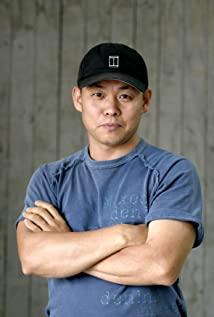This article is also known as "everyone is a dog."
"The Net" is a North Korean defector-themed film by Kim Ki-duk in 2016. It tells the story of a North Korean fisherman who accidentally crossed the border and drifted to South Korea because of a fishing boat failure. s story. Because they are all scattered ideas, they are marked with serial numbers.
1. A distinctive feature of Korean film directors is that they are very good at provoking the anger of the audience. Like me, I wrote this out of anger. (There is an angry burning QQ expression here)
2. The Korean nation is a hypocritical nation, especially politically. Let me give you an example. The team leader in the movie wanted to force the fisherman to be a spy. If he succeeded, he would definitely enjoy the credit. When the matter is revealed, then commit suicide to apologize. This is the false sense of honor common in the Korean nation. Not shame for doing wrong, but shame for being found out for doing bad. If they were Japanese, they would commit suicide after completing their mission. If he is Chinese, he will not apologize and will continue to be the team leader.
3. Due to the hypocrisy of Korean politics, there will never be enough great politicians in South Korea, which is also the reason why the presidency of South Korea is so dangerous. The Korean officials in the movie are all big idiots, which is also in line with my perception of the Korean government in reality.
4. Also due to this hypocrisy, it is difficult for South Korea to produce sufficiently good political works. What Korean directors are really good at is telling the feelings between little people, such as "Reply 1988". I strongly suspect that the pattern of directors and the size of the country are positively correlated. It is entirely possible for China to make excellent political films, but the problem with Chinese directors is that the foundation and technology are not good.
5. Even Kim Ki-duk was very powerless and lacked in thinking when he was making North-South movies. He just shouted rudely, South Korea and North Korea are nothing, everyone is a dog.
6. Of course, it's not all Kim Ki-duk's fault. I haven't come up with a better way. It cannot be said that South Korea is so good, North Korea is a dog. It doesn't work either.
7. Korean movies give people the feeling that they are always trying to get enough for 120 minutes. This is not criticism. How to get enough 120min is also a skill. For example, the plot in "Train to Busan" in which he crossed the carriage to find his wife and children is a good demonstration. The situation of each car is different. Throwing a mobile phone to attract zombies, encountering mutant classmates, waiting for the train to pass through the tunnel, a car will not look empty after 5 minutes. How can we get enough 120min in "Net"? In order to make the fisherman return to South Korea, he pretended to be a thief on the street, let him open his eyes, let him meet a prostitute, and then let the prostitute make a phone call. I'm going back to North Korea. I threw all my clothes away, but left a doll behind. What's the joke? North Korean officials scrutinized him, found dollars, and let him embezzle. This kind of plot, which seems deep and full of metaphors, is actually very superficial. even clumsy.
8. Another flaw is the lack of understanding of the characters' values. "The Godfather" is not great because the protagonist is a gangster, isn't the gangster a crime? What's so great about it? It is because the values of the characters in it are very clearly explained, they respect the rules and contracts, and they can do anything for the family. In contrast to "Net", where are the fishermen's values? In the end is for their own family or loyalty to the motherland? Not explained clearly. What are the values of the leader? Is it because his family was terrorized by North Korean spies or was it because he was an extremist? Not explained clearly. The Korean national anthem was sung inexplicably, which was a big joke.
9. The ending is also forced and profound. The fishermen returned home after all the hardships, and then went out to fish in disobedience and were shot to death. It's not that the protagonist has to die in order for the work to be profound. What's more, this kind of inexplicable death. The last shot, forcing the little girl to laugh, is another example of forcibly full of metaphors, which is actually very superficial.
10. In 2003, a reporter interviewed comparative anthropologist Sally Merry about a gang rape case in Pakistan. The reporter tried to lead her to say that despite the rape cases, the relative values of Pakistani culture should be respected. Sally said, I don't think so. The reporter asked, do you know any other anthropologist who thinks this way, Sally said, no anthropologist thinks that way. Although there are prostitutes in the film who want to go to North Korea, thinking that life there is better, and going there will be the next vegetative person. There has never been such a thing that North Korea and South Korea have relative values, there has never been such a thing that the North Korean people have their own happiness, and the Kim family is a complete dictatorship.
11. From the perspective of narrow nationalism, the Korean nation that speaks one language will definitely be unified. At that time, one has THAAD and the other has nuclear weapons, hum.
12. We are all cosmopolitans in terms of non-narrow nationalism. Hometown and motherland are not so important. Protecting the earth and protecting the talents around you are the most important.
View more about The Net reviews











